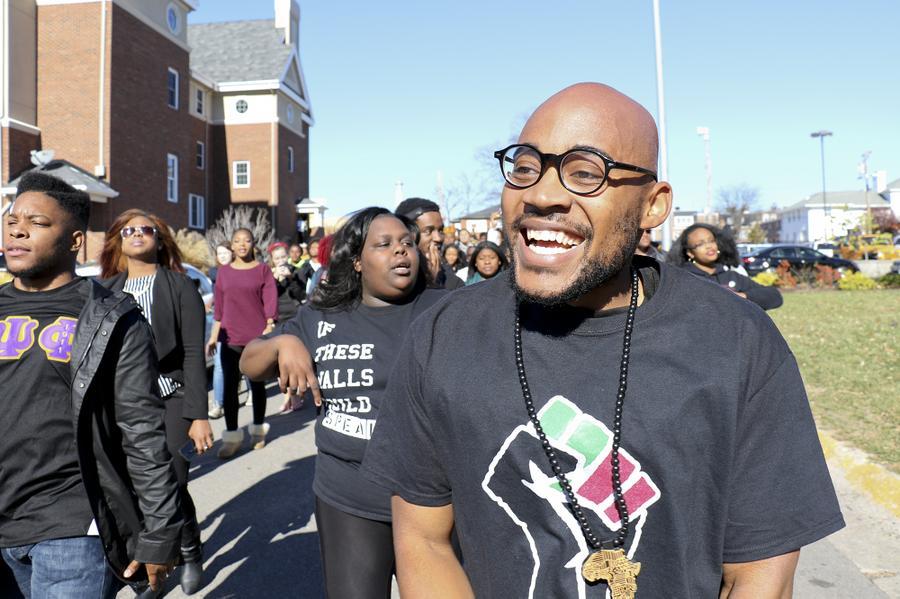
With the click of a button last Tuesday, explicit threats against minority students emptied the MU campus in less than 24 hours.
Yet on Sunday afternoon, children in Peace Park ran through the scrambling legs of reporters. Teachers grouped underneath the changing leaves and smiled. Peace Park rapidly filled with over 100 Columbia residents pushing strollers; business owners and activists held signs, and students and MU faculty prepared to march in support of inclusivity within the MU campus.
MU adjunct professor Grace Vega said she was thrilled to see more white people participating in the march.
“I challenge you to challenge others around you,” Vega said. “Challenge the way they think. You might not agree with everything Concerned Student 1950 did, but they sure did a hell of a job.”
Angela Speck, professor and chairwoman of the Faculty Council’s Diversity Enhancement Committee, pulled the march together in coordination with other faculty after repeatedly visiting the Concerned Student 1950 tents and online threats arose. The peace march evolved into something much larger than Speck originally thought, she said.
“We need to show the students that we have their backs,” Speck said. “We’ve got all these people here from the community, and they’re going to talk to each other and think about solutions. We’re trying to show solidarity for all marginalized students.”
Traci Wilson-Kleekamp, former School of Medicine director of diversity and outreach, sang through the march, echoing uplifting chants of “This Little Light of Mine,” and finally ending outside of the Gaines/Oldham Black Culture Center with “We Shall Not Be Moved.”
“We are here as a community to march in solidarity, and this is no longer just Mizzou,” Wilson-Kleekamp said. “We’re elevating the conversation.”
This march had a different makeup than other marches this past semester; instead of comprising of mostly students, there was a greater balance between Columbia residents and faculty.
“Too often this burden of change is left to people of color,” Vega said. “I have a brown husband and brown children. Watching my family directly affected by this gives me the passion to make change.”
Insomnia Cookies employee Ronnie Monroe remembered when his aunt, a woman of color, attended MU in the 1950s.
“I know that she didn’t speak up in the ’50s when she came to Mizzou, and I’m here because I want equal opportunities for every student,” Monroe said.
MU alum Rob Stewart attended marches last summer, and he said he is concerned for all students who face explicit threats.
“We need to be proactive instead of reactive,” Stewart said. “I’d like to see the new administration not only listening, but responding.”
Graduate student Ruth Cardenas expects the new administration to actively work to meet student’s demands.
“Our allies may not completely understand yet, but they’re here today to support,” Cardenas said. “Real action has to be taken now.”